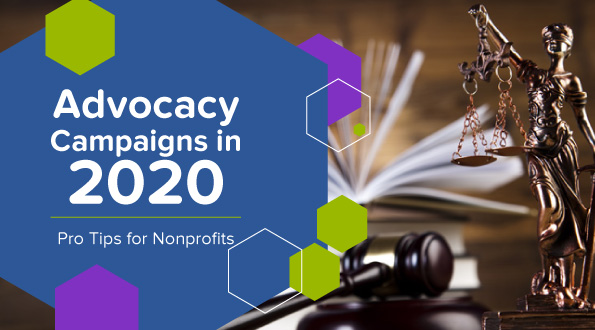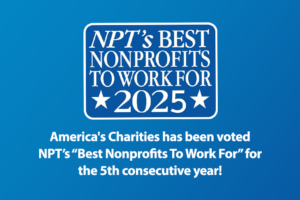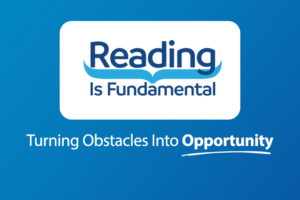Ryan Ozimek, Soapbox Engage | April 13, 2020
Advocacy Campaigns in 2020
Pro Tips for Nonprofits
It’s clear that the nonprofit sector and the economy as a whole are facing unprecedented levels of disruption due to COVID-19, also known as the coronavirus pandemic, and its larger economic impacts. These current events, along with the fact that 2020 is an election year, mean that more discussions are now occurring between organizations, communities, and public figures than we’ve probably ever seen before by this point in the year.
While fundraising may become an even bigger challenge for many nonprofits, there are still steps you can take to protect your donation levels over the coming months – namely, deepening your relationships and practicing more personal donor care.
These strategies will prove essential for nonprofit leaders looking to both stabilize their operations and reassure supporters that their good work won’t be stopping anytime soon.
We’ve already seen the sector as a whole moving in this direction, and staying the course is a smart move. Just look at the massive growth of the impact of corporate social responsibility and volunteer programs on our industry. Organizations of all types have begun connecting with each other in new ways and reaping the benefits of strengthening those connections. For example, in the midst of coronavirus, many organizations are starting to focus on virtual, skill-based volunteering, rather than in-person events.
Given the urgent health and safety discussions happening today, as well as the new realities of social distancing and the increased necessity of virtual fundraising and engagement, it’s clear that advocacy is the perfect way for nonprofits to tap into and strengthen connections with supporters.
Building meaningful relationships with supporters and communities is a winning strategy for any nonprofit, and advocacy is an effective way to get started under these new conditions. At Soapbox Engage, we help organizations with their fundraising and tech, under the umbrella of constituent engagement, and want to share what we’ve learned in this new normal, including:
- Benefits of conducting advocacy campaigns
- Pro tips for maximizing results and impact
- Measuring advocacy success
Benefits of Conducting Advocacy Campaigns
Clearly, large-scale public issues around the coronavirus pandemic, its economic impact, resulting social disruptions, and the 2020 election will all be at the forefront of people’s minds through the year-end. This means there are plenty of opportunities to remind constituents about how your nonprofit’s mission relates to one or more of those public issues.
If your nonprofit’s mission relates to any major public conversations happening in 2020, you’re already in a position to strengthen your connections through an advocacy campaign or general advocacy push.
Think of it this way: nonprofit advocacy (and especially online advocacy) will be key in a world where social distancing increases and decisions made by government officials at all levels will have more immediate, real-world effects on individuals than ever before. Advocacy plays the crucial role of channeling your supporters’ thoughts, opinions, and energies towards targeted, collective actions that can benefit society as a whole.
Advocacy will be more important than ever in 2020 and beyond. If you’ve never conducted an advocacy campaign before, here’s a quick refresher. The benefits of advocacy for nonprofit organizations can be broken down into three core categories:
-
Increased support and awareness for your mission. Advocacy efforts around public issues can effectively raise the visibility of your mission and organization across the board. Joining those conversations, stating your positions, and empowering supporters to take action or contribute to the discussion can all increase awareness of your mission (especially in the age of digital media). Plus, visible advocacy work establishes your organization as a voice worth listening to when it comes to your mission or sector.
-
Expanded reach and community growth. Think of this as translating your mission’s increased visibility into more tangible growth for your organization. While fundraising isn’t typically the aim of advocacy campaigns, their ability to reach large new audiences, grow your mailing lists, and generally expand your community is still extremely valuable. With effective online donation processes in place, fostering those new relationships with thoughtful, personalized outreach can lead to revenue growth.
-
Deepened relationships with advocates and supporters. In recent years, nonprofits have learned the benefits of engaging more directly with individual supporters through peer-to-peer fundraising. In advocacy campaigns, you can similarly empower individual advocates to help spread your message. By providing valuable resources, hosting effective events (virtually), and communicating frequently with advocates, you can reinforce their relationships with your organization to foster lifelong support and engagement.
With social distancing as the new reality, many segments of the population now have increased free time on their hands (and probably more anxieties than ever before, too). Online advocacy not only channels supporters’ energies towards collective, beneficial action related to your mission, but it can also give supporters a meaningful and safe way to continue engaging with the cause they care about. Empower your advocates and work to build personal relationships with them.
With the short- and long-term benefits of advocacy campaigns and awareness-raising efforts so clear, it’s now definitely worth considering your options. If you’re new to advocacy or just want to brush up on the essentials, check out this guide to Advocacy Basics Every Nonprofit Should Understand by Soapbox Engage for a complete overview.
Pro Tips for Maximizing Your Advocacy Results
If you’ve decided that expanding into online advocacy is a smart pivot for your organization, how can you craft a strategy to maximize the immediate results and long-term impact of your work? Here are a few reliable ways to strengthen your advocacy campaigns:
- Use integrated software. When your database, email platform, fundraising software, and any other software (like your petition or sign-up tools) can freely share data, your organization benefits from streamlined processes and faster insights. Immediately saving and organizing all of the new contacts your campaign reaches is a great example.
- Develop a multichannel marketing campaign. This is more important than ever now that so much nonprofit work has gone digital. A multichannel campaign promotes your advocacy efforts through multiple platforms in order to funnel readers and supporters towards a specific action. Your emails, blog posts, social media posts, press releases, and more should all play a role. Use your marketing materials to tell an engaging story about your campaign, encouraging supporters to stay engaged with your message and ultimately take your target action (like signing a petition). This guide from DNL OmniMedia is a good starting point to learn more about digital strategy.
- Determine the scale of your efforts. Is your advocacy campaign targeted towards an issue at the local, state, or federal level? What exactly do you want supporters to do once they’ve been inspired by your campaign? These answers should help shape your campaign strategy and tech stack. For example, if you ask supporters to contact their representatives at the federal level, make sure you’re using advocacy software that’s an approved partner of the official Communicating with Congress service.
- Empower your advocates with more resources. Give your volunteer advocates and online supporters access to digital resources like directories, training courses, email templates, educational content related to your cause, and more. For example, providing access to a corporate philanthropy database is an easy way to empower your supporters to check their eligibility for CSR initiatives like volunteer grant programs (learn more here – and reminder that America’s Charities’ nonprofit members can access Double the Donation’s matching gifts tools for free or reduced rate). Connecting your supporters with additional resources like these can be relatively low-cost ways to maximize the reach of your campaign and possibly boost incoming donations in the process. Even providing a weekly roundup of recent news related to your cause in the age of COVID-19 can be invaluable for keeping everyone in-the-loop.
- Customize your petitions and forms as needed. Finally, make sure to customize any forms that your supporters will interact with during your advocacy campaign. If you’re working with an integrated tech stack, customizing your forms to collect data points that you want to learn will boost the long-term impact of your efforts. For example, providing an optional field for your supporters to list their employers can be invaluable for your future corporate philanthropy outreach. Allowing supporters to note their preferred methods of digital contact can also be crucial for ensuring long-term engaging with your communications. Just be sure to not overdo it! Any process you ask your supporters to complete should be quick and easy.
With these tips, you can refine your advocacy strategy to maximize impact for your organization. Remember, one of the biggest benefits of advocacy for nonprofits is its ability to form and strengthen relationships with supporters both old and new. This is more important than ever as nonprofit communities go digital. Any strategies or tools you implement should ideally contribute to that overarching goal.
Wrapping Up: Measuring Advocacy Success
Most importantly, don’t lose sight of the core purpose of advocacy – to raise awareness of an issue and encourage supporters towards a particular action. Fundraising should not be the core goal of an advocacy campaign. When your supporters are concerned with much larger-reaching concerns in their daily lives, an emphasis on fundraising can easily fall on deaf ears.
Instead, you’ll want to expand beyond your typical fundraising campaign key performance indicators. Advocacy campaigns often measure their success via KPIs like these:
- Signatures on petitions
- Signups for volunteering
- Online engagement or shares
- Emails or calls to legislators
- New supporter acquisition or previous supporter retention
The particular strategy and structure of your own campaign will be determined by a number of unique factors, like your mission, the core issue you’re addressing, your community, and the specific action you’d like supporters to complete.
Your organization’s historical data can be an invaluable resource when it comes to building an advocacy strategy, especially if you’ve conducted advocacy campaigns in the past and/or are new to conducting 100 percent virtual campaigns. Ask yourself these questions when setting KPIs:
- How many supporters do we have? Volunteers/digital advocates? Donors?
- How did our last advocacy campaign perform? What was its conversion rate?
- Do we retain volunteers and advocates from one campaign to the next?
- How many new supporters or contacts did we reach with our last campaign?
Use these insights to shape your new strategies and set ambitious but achievable goals. Even if you’re new to this kind of campaigning, you can use your historical fundraising data to get a similar feel for your ability to reach and retain supporters.
2020 will undoubtedly be a challenging year for many organizations, but advocacy represents an ideal way to double down on relationship-building and stabilizing your base of support. Just be sure to put careful thought into developing a plan. Any campaign performs better when it’s backed up with strategy and data.
About Ryan Ozimek
As the founder of a software company serving the public sector, Ryan is passionate about empowering organizations to “do good.” With a focus on effective and efficient technology solutions, he’s constantly looking for ways in which the Internet can better serve the greater good, and more specifically the nonprofit sector. He leads up the Soapbox Engage team in our pursuit of affordable and accidental techie-friendly online engagement software, is a Salesforce MVP, and leads the NPSP Days around the world. Ryan has a bachelor’s degree in communications from UCLA, and a master’s of public policy from UCLA’s School of Public Affairs. He’s also a fan of burritos, so if you have any tips to finding the best taqueria in the world, let him know.

Get Resources and Insights Straight To Your Inbox
Explore More Articles
For Fifth Consecutive Year America’s Charities Named ‘Best Nonprofit To Work For’
Washington, D.C. – April 1, 2025 – America’s Charities, the nonprofit that mobilizes the power of giving as a leading provider of volunteering, workplace giving,…
Read ArticleWorkplace Fundraising + Volunteering Summit (April 2nd and 3rd, 2025)
Join us in attending this virtual summit! The America’s Charities team is joining up with other leading voices in the workplace giving space for a…
Read ArticleThe Time to Act is Now
The results of the 2024 National Assessment of Educational Progress (NAEP) are in, and the findings are, in a word, heartbreaking. This assessment serves as…
Read ArticleGet Resources and Insights Straight To Your Inbox
Receive our monthly/bi-monthly newsletter filled with information about causes, nonprofit impact, and topics important for corporate social responsibility and employee engagement professionals, including disaster response, workplace giving, matching gifts, employee assistance funds, volunteering, scholarship award program management, grantmaking, and other philanthropic initiatives.








